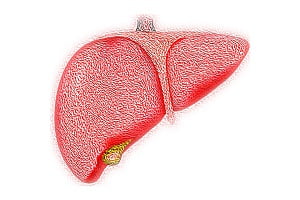Overview of Hepatitis
- Updated on: Jul 29, 2024
- 8 min Read
- Published on Apr 25, 2019

Viral hepatitis is an inflammation of the liver caused by different types of viruses. There are different types of hepatitis diseases including hepatitis A, hepatitis B, hepatitis C, hepatitis D, and hepatitis E. Each type has different symptoms and requires different treatments. Hepatitis disease can be self-limiting or can progress to fibrosis (scarring), cirrhosis or liver cancer.
Normally, the liver helps in detoxifying the blood, storing vitamins, and producing hormones. Hepatitis disease can disturb these processes and create severe health problems in the body. There are five different types of viruses that can cause hepatitis. Among these viruses, three most common are hepatitis viruses A, B and C. Infection with any of these three viruses can be fatal. There are some other types of hepatitis caused by either overconsumption of alcohol or some autoimmune conditions.
In the United States, the incidence of hepatitis A has been declining for the last 20 years, but acute hepatitis C cases have increased by 44 percent between 2011 and 2012.
Viral Hepatitis Facts
Hepatitis (inflammation of the liver) can be caused due to many illnesses and conditions but viruses have been found to cause about half of all hepatitis cases in people. This is why viral hepatitis is the most common form of hepatitis. There are certain important facts about viral hepatitis that one should know. Some of them are given below:
- Viruses that particularly attack the liver are called hepatitis viruses.
- There are several types of hepatitis viruses like hepatitis virus A, B, C, D, E, and sometimes G. Among all these types A, B, and C are the most common.
- All hepatitis viruses can cause acute hepatitis but hepatitis B and C viruses can cause chronic hepatitis.
- Acute hepatitis has fewer symptoms that often go unrecognized and in very rare cases, acute viral hepatitis can cause fulminant hepatic failure.
- Chronic viral hepatitis symptoms are often mild and non-specific, and the diagnosis is often delayed.
- Chronic viral hepatitis can cause progressive liver damage, cirrhosis, liver failure, and liver cancer and therefore often requires treatment in order to prevent these conditions.
- Hepatitis infections can be prevented by avoiding virus exposure, by having vaccines, and by injecting immunoglobulins. However, vaccines are available for only hepatitis A and B viruses.
- People who are at a higher risk for viral hepatitis B and C mainly include workers in the health care profession, people with many sexual partners, intravenous drug abusers, and people suffering from hemophilia.
What are the different types of Hepatitis?
Hepatitis caused by viruses is called virally transmitted hepatitis or viral hepatitis. There are different types of viral hepatitis such as A, B, C, D, and E type and each type is caused by a different virus. Hepatitis A is mostly acute and short-term disease, while hepatitis B, C, and D are mostly constant and chronic. Hepatitis E is also acute but very dangerous in pregnant women.
Hepatitis A
Hepatitis A is caused by hepatitis A virus (HAV) and is most commonly transmitted by consuming food or water contaminated by feces from a Hepatitis A infected person.
Hepatitis B
Hepatitis B is caused by Hepatitis B virus (HBV) and is transmitted through contact with HBV infected body secretions like blood, vaginal secretions, and semen. It has been estimated by the CDC that 1.2 million people in the United States and 350 million people all over the world live with this chronic disease.
Hepatitis C
Hepatitis C is caused by hepatitis C virus (HCV) and can be transmitted through direct contact with infected body fluids, usually through injections, drug use, and sexual contact. In the United States, HCV is one of the most common blood borne viral infections.
Hepatitis D
It is also called delta hepatitis and is a serious liver disease caused by the hepatitis D virus (HDV). HDV can be transmitted through direct contact with infected blood. Hepatitis D is a rare form of hepatitis that only occurs in conjunction with hepatitis B infection because the hepatitis D virus is unable to multiply without the presence of hepatitis B virus.
Hepatitis E
Hepatitis E is a waterborne disease caused by an infection with hepatitis E virus (HEV). Hepatitis E is mainly found in areas with poor sanitation and usually results from ingesting fecal matter that contaminates the water supply. This disease is uncommon in the United States.
How do you get Hepatitis?
A person can get different types of hepatitis virus infections by different ways. Some of the ways are:
1) A person can get hepatitis A by having food or water contaminated with HAV.
2) Hepatitis B virus infection can occur by following ways:
- Having sex with an infected person
- Sharing dirty needles
- Direct contact with infected blood
- Injuries with needle stick
- Transferred from infected mother to unborn child
- Contact with an infected person’s body fluids
3) A person can get hepatitis C by following ways:
- Sharing dirty needles
- Direct contact with infected blood
- Needle stick injuries
- Sexual contact with an infected person (less common)
Symptoms of Hepatitis
Mostly, people with hepatitis experience either mild or no symptoms. Usually in all the types of hepatitis, symptoms appear after 15 to 180 days of infection. Hepatitis can be either acute or chronic and both the forms have different symptoms.
Acute Hepatitis Symptoms
Acute hepatitis is the initial phase of hepatitis and shows symptoms similar to mild flu. Some of the symptoms found are:
- Jaundice hepatitis
- Diarrhea
- Fatigue
- Loss of appetite
- Mild fever
- Muscle or joint pain
- Nausea
- Mild abdominal pain
- Vomiting
- Weight loss
- Flu-like symptoms
- Dark urine
- Pale stool
- Abdominal pain
The acute phase hepatitis is not usually dangerous, but in some people, it can cause acute liver failure and death.
Chronic Hepatitis Symptoms
Sometimes, acute hepatitis may progress to a chronic infection called chronic hepatitis, which can cause progressive liver failure, jaundice, swelling of the lower extremities, confusion, and blood in the feces or vomit. Some of the symptoms of chronic hepatitis include:
- Dark urine
- Hives
- Itchy skin
- Light colored feces
- Yellow skin, whites of the eyes, and tongue
Chronic hepatitis does not have any symptoms in the beginning and the symptoms do not occur until the damage affects liver function. Some people do not come to know about chronic hepatitis until liver failure occurs. Chronic hepatitis develops slowly, so the signs and symptoms are too subtle to notice.
How is Hepatitis Diagnosed?
Hepatitis can be diagnosed by following ways:
History and Physical Exam
For a proper diagnosis of hepatitis, the doctor will ask for patient history for determining the risk factors for infectious or non-infectious hepatitis. It is usually followed by a physical examination, wherein the doctor may check for any pain or tenderness in the patient’s abdomen, enlarged liver and yellowness in skin and eyes.
Liver Function Tests
Liver function tests are used to determine the efficiency of liver function. Abnormal results of these tests may be the first indication of liver problems, especially if there are no signs on a physical exam of a liver disease.
Other Blood Tests
If the liver function tests are abnormal, the doctor recommends some other blood tests to check the source of the liver problem. These tests can help in checking the viruses that cause hepatitis. These tests can also be useful in detecting the antibodies that are common in conditions like autoimmune hepatitis.
Ultrasound
An abdominal ultrasound helps the doctor in examining the liver and nearby organs closely. An ultrasound can help to reveal:
- Fluid in the abdomen
- Liver damage or enlargement
- Liver tumors
- Abnormalities of gallbladder
Sometimes, the pancreas shows up on ultrasound images as well and can be a useful test in determining the cause of abnormal liver function.
Liver Biopsy
A liver biopsy test allows the doctor to determine the effect of infection or inflammation on the liver. It can also be used to identify abnormal areas in the liver.
Treatment of Hepatitis
The treatment options depend on the type of hepatitis and also on the type of infection i.e., acute or chronic.
Hepatitis A Treatment
Hepatitis A usually doesn’t require any treatment as it is a short-term illness. But sometimes bed rest may be recommended if symptoms cause a great deal of discomfort. Also, hepatitis A vaccine is available for preventing the HAV infection. In children, the vaccination is given between ages 12 and 18 months and it is a series of two vaccines. Hepatitis A Vaccination is also available for adults and can be combined with the hepatitis B vaccine.
Hepatitis B Treatment
Acute hepatitis B needs no specific treatment. However chronic hepatitis B is treated with antiviral medications. Treatment for chronic hepatitis B also requires regular medical evaluations and monitoring to check the response of the virus to treatment. Hepatitis B can be prevented with vaccination. Hepatitis B vaccines are recommended to all newborns and the series of three vaccines is usually completed over the first six months of childhood. The Hepatitis B vaccine is also recommended for all healthcare and medical personnel.
Hepatitis C Treatment
Antiviral medications can be used to treat both acute and chronic forms of hepatitis C. People who suffer from chronic hepatitis C are usually treated with a combination of antiviral drug therapies and may also require further testing to establish the best form of treatment. People having liver cirrhosis (scarring of the liver) or liver disease because of chronic hepatitis C may require a liver transplant. Right now there is no vaccination for hepatitis C.
Hepatitis D Treatment
Although no antiviral medications exist for the treatment of hepatitis D at this time but according to a study, a drug called alpha interferon can be used to treat hepatitis D, however it only shows improvement in about 25 to 30 percent of people. Hepatitis D can be prevented by getting vaccinated for hepatitis B, as infection with hepatitis B is necessary for hepatitis D to occur.
Hepatitis E Treatment
Currently no specific medical therapies are available to treat hepatitis E, because the infection is often acute, and usually resolves on its own. But the people with this type of infection should get adequate rest, drink plenty of fluids, get enough nutrients, and avoid alcohol. However, if pregnant women get this infection, they may require a close monitoring and care.
Treatment for Autoimmune Hepatitis
Drugs like prednisone or budesonide (corticosteroids) are very important in the early treatment of autoimmune hepatitis and have been found effective in almost 80 percent of people with this condition. Azothioprine (Imuran) is a drug used to suppresses the immune system and is often included in the treatment of autoimmune hepatitis. It can be used with or without steroids. Some other immune suppressant drugs like mycophenolate (CellCept), tacrolimus (Prograf) and cyclosporine (Neoral) can also be used as alternatives to azathioprine for the treatment of autoimmune hepatitis.
How Can Hepatitis be Prevented?
Hepatitis is very dangerous and also difficult to treat. People should take appropriate precautions against possible infections. Various types of hepatitis infections can be prevented by the following ways:
Preventing Hepatitis A
Since hepatitis A can spread through infected food and water, the following steps can help in avoiding this infection, especially when we are traveling:
- Cleaning our hands with soap after using the bathroom.
- Consuming freshly cooked food.
- Drinking commercially bottled water or boiled water especially when we are not sure about the local sanitation.
- Eating only peelable fruits especially in places with unreliable sanitation.
- Eating cleaned or disinfected raw vegetables only
- Getting vaccinated for HAV if we are traveling to hepatitis endemic places
How to minimize the risk of transmission
We should avoid the transmission of hepatitis infection in following ways:
- Practicing safe sex by using condoms
- Using clean and unused needles only
- Not sharing our toothbrushes, razors, or manicure instruments
- Using only well-sterilized skin perforating equipments during a tattoo, piercing, or acupuncture
The HBV infection can be prevented by having HBV vaccines
How to Prevent Hepatitis C?
Since HCV is passed on through the transfer of infected bodily fluids, the following steps can help in preventing HCV transmission:
- Not sharing needles, toothbrushes, or manicure equipments
- Using well sterilized equipments for any skin piercing
- Consuming very little or no alcohol
- Avoiding drug abuse
Both Hepatitis A and C are curable but hepatitis B can be preventable by vaccines only and a cure is still under development.
Prognosis or Outlook of Hepatitis
Different types of hepatitis have different chances of recovery, for example:
- Hepatitis A normally resolves in 2 months without leaving any long-term effects and a person with HAV usually becomes immune to hepatitis A for the rest of his life.
- Hepatitis B infected adults mostly recover within 90 days and then achieve a lifelong immunity. However, almost 90 percent of infants, 20 percent of older children, and 5 percent of adults develop a chronic infection with severe health problems like liver cancer and cirrhosis.
- Hepatitis C is a lifelong infection in 70 to 85 percent of people. It is fatal in between 1 and 5 percent of people. However, the infection is curable now, and 15 to 25 percent of people with HCV clear the infection without treatment.












